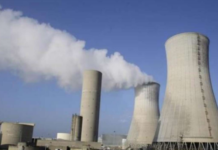New Delhi– Though the RBI’s raising policy rates in the ongoing monetary policy committee meeting is a “no-brainer”, as its Governor Shaktikanta Das said in a recent interview, investors, however, await the actual degree of percentage hike before taking fresh positions and future course of action in the financial markets.
Besides policy rates, investors also eye other macro-economic forward-looking guidance from the central bank.
The three-day meeting started on Monday.
In early May, the RBI, in a surprise off-cycle meeting, hiked the repo rate, the rate at which the central bank lends short-term funds to banks by 40 basis points (bps) to 4.40 per cent, amidst rising inflation concerns in the economy.
In the same off-cycle meeting, the cash reserve ratio was hiked by 50 basis points to 4.5 per cent essentially to squeeze out some liquidity from the system.
India’s retail inflation accelerated to 7.79 per cent in April, remaining above the tolerance limit of the central bank for a fourth month in a row. It is highly likely that the retail inflation will remain above 6 per cent for another few months.
Besides, wholesale inflation in the country rose to 15.08 per cent in April 2022 from 14.55 percent in March, which has been in double digit for over a year now.
Below are some of the expectations by analysts, market observers, and real estate players on the possible outcome of the ongoing monetary policy meeting:
Deepak Jasani, Head of Retail Research at HDFC Securities
MPC’s off-cycle policy meeting in May clearly pivoted its focus on inflation over growth as a policy priority. The MPC is likely to increase the benchmark repo rate in its ongoing monetary policy review as inflation shows no signs of abatement.
The RBI is likely to follow a nuanced and calibrated approach to rate hikes once it reaches its pre-Covid neutral accommodation (5.15 per cent vs current 4.40 per cent). We expect a 40 basis points rate hike in the upcoming policy meet and see the RBI raising policy rates to 5.15 per cent by calendar year end.
Any further rate hikes will be contingent on the inflation-growth dynamics and would be data dependent.
Hence, equity markets and debt markets have for the most part discounted this rate hike and market reaction would depend more on the statement of the RBI Governor hinting about the future course of action.
Ashish Chaturmohta, Director, Research Group at JM Financial Services
India is currently facing the heat of “imported inflation” owing to rising crude prices, supply chain disruption and global liquidity absorption.
Hence, to control the same, the government has played its role by reducing petrol and diesel prices, bringing in restrictions for exports in order to keep the domestic market stable etc, and on the other hand, the RBI has been very proactive in their actions, which was clearly visible from their 40 base points surprise rate hike.
It’s been the first time in the last several years that the RBI and the Government are both working in a synchronised way. We believe the rate hike would be 30-40 basis points along with a stable outlook on the GDP.
Mohit Batra, Founder and CEO of MarketsMojo
The RBI will try to tackle two issues in its upcoming monetary policy – tackle inflation and ensure that the rupee does not depreciate too much against the dollar. The last time when the RBI revised its inflation target, crude was at $100 per barrel, and now it’s trading at $120 per barrel, suggesting a risk of inflation flaring up is high.
Keeping these facts like rupee depreciation and high inflation rate, I expect RBI to hike the interest rate by 50 basis points.
Satish Kumar, Research Analyst at Choice Broking
We are estimating a repo rate hike of 40 basis points by the central bank in the coming monetary policy to contain the inflation which rose to 8-year high of 7.8 per cent in April. Upside risks to inflation remain elevated given the prevailing high crude oil and commodity prices amidst supply side concerns.
Pushpender Singh, MD of JMS Group
The outcome of the MPC meeting is pretty obvious, most probably leading to an inevitable hike in the repo rate in lieu of a concerted effort to lower the inflation rates, which perhaps is becoming a huge aberrant in the growth parameters of the economy. I do not expect to see a massive increase in the repo rate but definitely, a slight rise will be announced to curb the dwindles and shift the radar of growth in the right direction.
Aman Sharma, Director at Spaze Group
There are great chances of a repo rate hike yet again in a bid to control the inflationary rates that grow unabated despite direct attempts to stop it. It has to be accepted with a pinch of salt by the industries across the segments which will face teething troubles due to the probable hike after the RBI’s MPC meeting.
A surge in the repo rate is almost certain, I do not think there will be a sharp insurgence but somewhat a marginal increase to let the inflationary challenges deflate and the numbers drop.
Mohit Nigam, Head, PMS, Hem Securities
The repo rate is anticipated to be raised by another 40-50 basis points by the MPC. This decision is influenced by rising price levels as a result of ongoing geopolitical tensions and supply-chain pressures, which are driving inflation higher. The primary goal of the RBI would be to keep inflation under control and minimise its second-round impacts.
Inflationary pressures on food and fuel remain high, and supply-chain disruptions continue to put upward pressure on input costs. The biggest issue is that if rates are raised further, urban demand, which was formerly a major concern, may dwindle. Agricultural output will be supported by favourable weather conditions, thus rural demand may not be affected as much.
Ashish Khandelia, Founder of Certus Capital
We expect the repo increase to be between 40-50 basis points in upcoming MPC meeting with future increases leading to 5.75 per cent (where we were exactly 3 years ago) or upwards by the end of FY23. 40 basis points increase in May caused homes loans to move in to 7 per cent +/- range from 6.5 per cent earlier.
And by the end of this financial year, home loan rates will likely touch 8 per cent. This is unlikely to derail the housing momentum, but it will certainly soften it. Coupled with increasing prices, the growth may slow down a bit in FY23, after a record FY22. (IANS)







